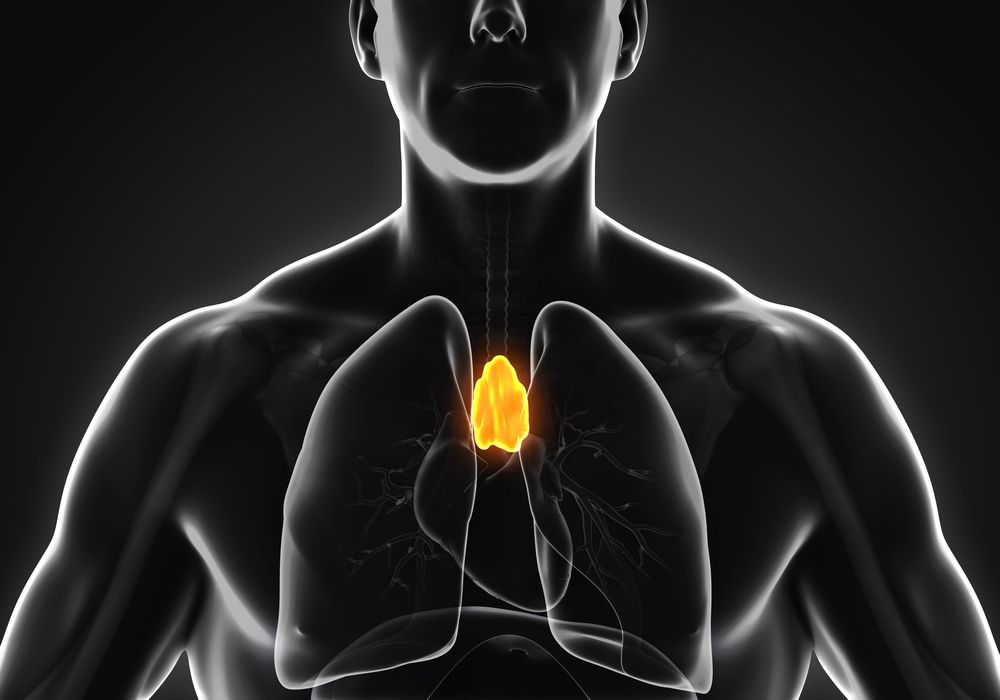Page 10001
Feb 8, 2018
Cancer Risk Rises as The Thymus Shrinks
Posted by Steve Hill in categories: biotech/medical, life extension
We wanted to bring your attention to an open-access publication in which the researchers suggest that the age-related decline of the thymus is more important than DNA mutation as a cancer risk factor[1].
Repairing the damage
As we have discussed in this article, cancer is caused by DNA damage that creates mutations. Damage to our DNA happens all the time, and we have various repair systems in place for it.
Feb 8, 2018
We are happy to announce Dr. Anthony Atala as a speaker for the 2018 Undoing Aging Conference
Posted by Michael Greve in categories: biotech/medical, life extension
Dr. Atala is the Director of Wake Forest Institute for Regenerative Medicine at Wake Forest School of…
Feb 8, 2018
The Incredible Sounds of the Falcon Heavy Launch (BINAURAL AUDIO IMMERSION) — Smarter Every Day 189
Posted by Klaus Baldauf in category: futurism

WEAR HEADPHONES! Click here for Sound Traveler →http://bit.ly/Sub2TheSoundTraveler Checkout Trevor’s Myspace Page: https://www.patreon.com/trevormahlmann
The Sound Traveler on Patreon: https://www.patreon.com/TheSoundTraveler
Click here if you’re interested in subscribing: http://bit.ly/Subscribe2SED
⇊ Click below for more links! ⇊
NOTE: Turns out they screwed up and put the same video feed on both of the bottom quad views. I had being wrong in a Smarter Every Day, but obviously I was trying to get this out. Seriously… I will think about this video error for years.
Feb 8, 2018
The ambitious quest to cure ageing like a disease
Posted by Derick Lee in categories: biotech/medical, life extension
The scientists who hope to do this sit on the fringes of the mainstream medical landscape. But there are now a number of research centres around the world that have made identifying ways of preventing biological ageing a priority. Studies in animals have shown that it is indeed possible to dramatically extend the lifespan of certain species, giving hope that it could also be possible in humans.
As we learn more about the diseases that affect us, we also get better at controlling them. But will we ever manage to overcome the most inevitable of afflictions – old age?
Feb 7, 2018
Chinese cops are wearing glasses that can recognize faces
Posted by Shane Hinshaw in category: robotics/AI
AI that identifies people in crowds is already pervasive in China—and now it’s augmenting police officers’ eyes, too.
Smart specs: The Wall Street Journal says the hardware, made by LLVision, sends data from its camera to a handheld device, where AI software crunches through an offline database of 10,000 pictures of suspects in about 100 milliseconds to help officers spot criminals. It’s unclear how accurate it is.
How they’re used: The glasses will be used to monitor busy crowds in China as citizens travel for next week’s Lunar New Year. But the People’s Daily newspaper says they’ve already been tested in Zhengzhou railway station, catching seven wanted criminals and 26 people travelling on fake ID.
Continue reading “Chinese cops are wearing glasses that can recognize faces” »
Feb 7, 2018
Mutant, all-female crayfish spreading rapidly through Europe can clone itself
Posted by Genevieve Klien in category: futurism
Feb 7, 2018
Wireless charging is meh, but it’s going to get way better
Posted by Genevieve Klien in category: mobile phones
Feb 7, 2018
NASA will test a key deep space navigation tool this year
Posted by Genevieve Klien in category: space
JPL’s Deep Space Atomic Clock is finally ready for testing after two decades in the making.
Feb 7, 2018
Fast-spinning spheres show nanoscale systems’ secrets
Posted by Saúl Morales Rodriguéz in categories: nanotechnology, particle physics

Spin a merry-go-round fast enough and the riders fly off in all directions. But the spinning particles in a Rice University lab do just the opposite.
Experiments in the Rice lab of chemical engineer Sibani Lisa Biswal show micron-sized spheres coming together under the influence of a rapidly spinning magnetic field. That’s no surprise because the particles themselves are magnetized.
Continue reading “Fast-spinning spheres show nanoscale systems’ secrets” »
















